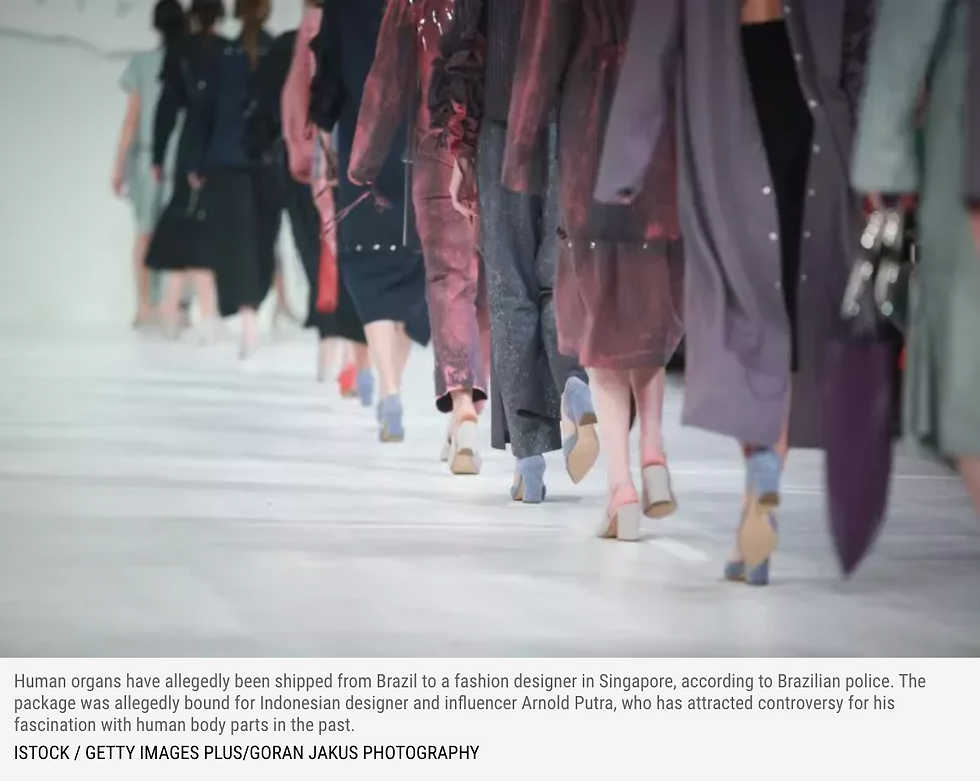Human Organs Harvested and Trafficked for Fashion Designer, Say Police
- Feb 24, 2022
- 2 min read
February 24, 2022
A human hand and three packets of human placenta have allegedly been shipped from a Brazilian university to a fashion designer in Singapore, according to the Brazilian Federal Police.

Police raided a lab at the Amazonas State University on February 22 and revealed that the organs were preserved by an anatomy professor, according to Vice World News. A police statement in Portuguese claimed that the anatomy lab "performed the extraction of body fluids," part of the process of plastination, in which fluids are replaced by plastics such as silicon and epoxy in order to preserve body parts. The professor is now under investigation. It is not clear yet whether the shipment has been intercepted on its way to Singapore.
The package was allegedly bound for Indonesian fashion designer and influencer Arnold Putra, who has attracted controversy for his fascination with human body parts in the past. In 2020, he made news for selling a handbag made of bones from a human spine. Putra claimed the bones were "ethically sourced" from a medical surplus in Canada.
On Instagram, Putra responded to online criticism of the bag by writing: "It's part of a creative learning process that should involve opposition—otherwise it would just be a form of repeated validation." He added in an Instagram story that the bag was part of a collection "derived from plastinated human remains and albino skin." It is unclear whether he was joking.
On the platform Not Just a Label, Putra said that he is "mesmerized by exaggerated body parts of mythic humanoids only passed around from mouth to mouth."
The designer is reportedly wealthy and has portrayed a luxurious life on social media, although his Instagram account is now private. In 2017, the magazine Indonesia Tatler described him as one of the "most prolific car collectors" in Indonesia.
Last month, Putra drew ire for wearing an outfit inspired by the Pancasila Youth, a far-right paramilitary group, to Paris Fashion Week. The organization ran death squads for the Indonesian army during the country's 1965-1966 genocide.
Putra would not be the first artist to be prosecuted for the use of human body parts. British artist Anthony-Noel Kelly was found guilty of smuggling human remains from the Royal College of Surgeons to make molds for sculptures. He was sentenced to nine months in prison in 1998.
Human organ trafficking is illegal in almost every country, with varying penalties. The differing laws in each nation can complicate prosecutions involving more than one country. The crime carries a jail sentence of up to eight years in Brazil.
SOURCE: Newsweek










Comments